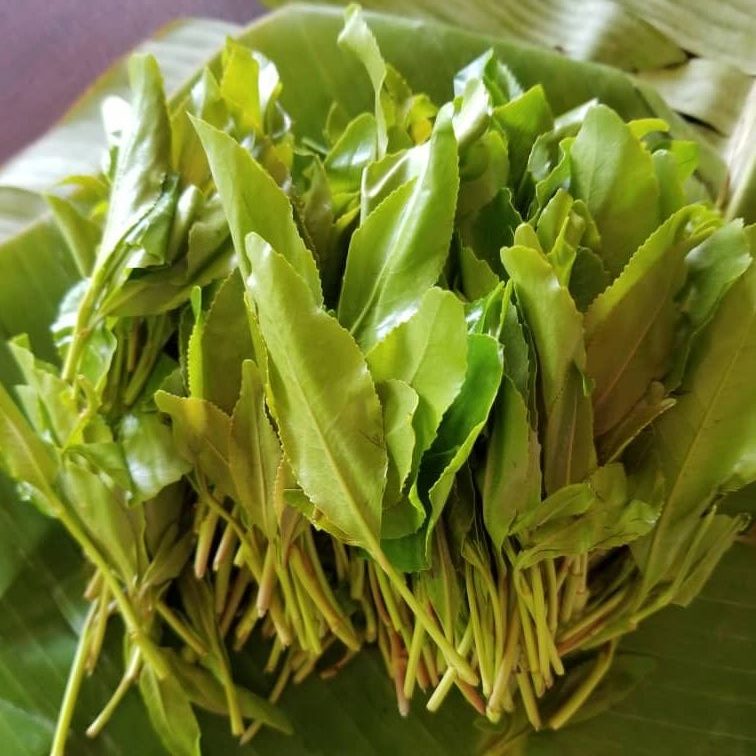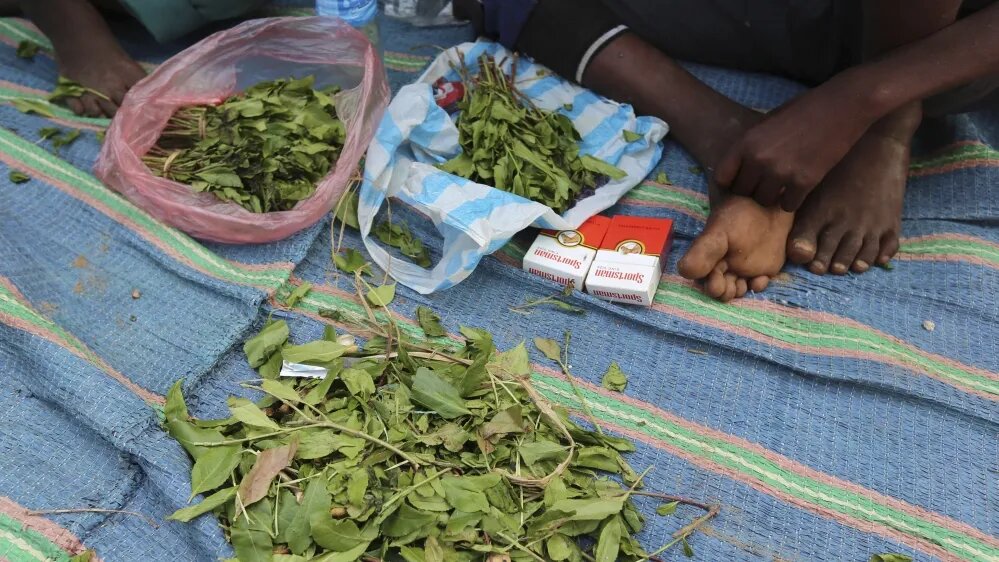TO SMOKE A JOINT OR CHEW A KHAT: Has gov’t ignored health risks when passing the Narcotics and Psychotropic Substances (Control) Bill?
According to the new Bill, farmers involved in the cultivation of the prohibited substances, cannabis and khat, will now have to obtain licences from the ministry of health, and those who fail to do so will suffer jail, according to the content of clause 11.

The debate raged on, experts, including health and nutritionists, were consulted, and finally, Parliament on Tuesday, 22 August 2023 passed the Narcotics and Psychotropic Substances (Control) Bill, 2023. The Bill, among other things, allows the licensed farming, trade and use of marijuana and khat strictly for medical use. It also sets harsh penalties for a multitude of offences related to substance abuse.
Parliament has passed the Narcotics Drugs and Psychotropic Substances (Control) Bill, 2023.
The Bill will address the misuse of narcotic drugs and psychotropic substances by imposing punitive measures on drug abusers, etc. #PlenaryUg pic.twitter.com/9pDx45iBiT— Parliament of Uganda (@Parliament_Ug) August 22, 2023
If assented to by President Yoweri Museveni, Clause 1 gives the Bill immediate enforceability. The Chairperson of the Committee on Defence and Internal Affairs, Wilson Kajwengye, said the opening clause provides the urgency to plug loopholes in the regulation of narcotics and psychotropic substances. This means that while the proposed law provides for the growing of marijuana and khat, it also provides strict regulation of its use outside medical uses.
Second time calling
The new development follows the annulment of the Narcotic Drugs and Psychotropic Substances Control Act, 2016 by the Constitutional Court. When the court nullified the law on a technicality that the Bill was passed without the required quorum, two weeks later, the government reintroduced the Bill on 23 May 2023. Since the reintroduction of the Bill, Parliament has been busy.
The annulment came after Wakiso Miraa Growers and Dealers Association filed a petition in 2017.
Strictly only for medical use
The new law seeks to allow the cultivation of marijuana and khat (miraa or mayirungi) strictly for medical and other authorized use. Abuse of these substances attracts extreme penalties lengthy jail terms and hefty monetary fines. With these penalties, and a stricter licensing regime, Kajwengye, also Nyabushozi County MP, said Uganda joins nations intolerant to drug and psychotropic substances abuse.
#VIDEO: Hon. Laura Kanushu (PWD) says Khat has adverse effects on mental health and therefore, should be regulated. The House has rejected the proposal to exclude khat as a prohibited plant. #PlenaryUg pic.twitter.com/GIZMPS8qFD
— Parliament of Uganda (@Parliament_Ug) August 22, 2023
Kajwengye said: “The committee posits that all licenses and permits to be issued under this Act should centrally be issued by the ministry responsible for health since the permission to use narcotic drugs and psychotropic substances is restricted to only medical purposes. The Ministry of Internal Affairs should remain the enforcement arm of the government.”
He said that khat, a leafy green plant containing stimulant drugs which cause excitement of the mind and body, will, according to the revised Bill, also be a controlled substance only cultivated with a license and consumed on medical prescription, should the President grace the Bill with his assent.
Kajwengye noted that under a highly controlled legal regime, the international obligations notwithstanding, the two plants (marijuana/cannabis and khat) should only be allowed for cultivation and usage strictly for medical purposes and research.
MPs maintain the ban on khat
A last-ditch effort to save khat from the list of banned substances by MP Asha Kabanda Nalule (NUP, District Woman Representative, Butambala) failed when the Deputy Speaker of Parliament who chaired the parliamentary sitting, Thomas Tayebwa, put her proposal to the vote, and the MPs voted against it.
#VIDEO: Hon. Timothy Batuwa puts up a fight against the prohibition of Khat (Mairunji), saying it is against the spirit of promoting local content. #PlenaryUg pic.twitter.com/Jw5xfLXfLU
— Parliament of Uganda (@Parliament_Ug) August 22, 2023
The Jinja South Division West MP, Timothy Batuwa, was on the side as Kabanda. Batuuwa reignited the fight to declassify khat from the list of prohibited substances when he argued that the plant, popular with cross-border truck drivers, should be permitted to conform to East African Community member countries. Khat is popular in Kenya, Somalia and parts of Tanzania.
“When legislating the Local Content Bill, it was returned and the President asked us to have an East African Community mindset when legislating. Some people consume khat and they live with us as refugees and as a business community,” Batuuwa said, comparing khat to tobacco and asking to have it completely legalized.
With this position, he earned the wrath of MP Laura Kanushu (NRM, PWD National), who said she is not eager to have her constituency [of Persons Living with Disabilities] expanded. It is widely believed excessive use of cannabis or khat leads to mental illness and other bodily harm that may cause mental and physical disability.

The Attorney General, Kiryowa Kiwanuka agreed with Kanushu, saying: “Two per cent of the people in Butabika are there for using khat-like stimuli; it would be very sad for us to come back here and say the number has increased to 10 per cent [as a result of this Act],” he said.
Butabika warns of grave health risks
While appearing before the Committee on Defence and Internal Affairs, the Minister of Internal Affairs, Maj. Gen. (Rtd) Kahinda Otafiire, pleaded with MPs to decriminalise cannabis for medical use but officials from Butabika Hospital countered the plea saying the substances pose several health risks.
A team from Butabika Hospital, led by Juliet Nakku, Executive Director- of Butabika Hospital, informed Parliament when it interfaced with the Committee on Defence and Internal Affairs, of increased cases of infertility among youths using khat in Uganda. The Hospital officials warned that although there have been reports in public that khat & cannabis consumption has no effects on people’s health, psychiatrists have registered sexual reproductive challenges posed by the use of khat.
Butabika Mental Hospital asked Parliament to prioritise public health, instead of revenue, by maintaining the ban on the use of cannabis and khat in Uganda to protect young people from the effects of the use of these drugs.
“We strongly recommend that for the good of public health & economic progress in this country, both cannabis & khat should remain prohibited. We should have a thoughtful regulation that prioritises public health & we must keep commercial pressures in check & prioritise health, especially of young Ugandans who are core at risk of abusing narcotics and psychotropic substances,” Nakku pleaded.
She added: “I am sure the media will be interested in this one, it (khat) causes low sperm count. It even causes impotence; it causes libido changes. Psychiatrists are seeing these patients with severe sexual problems by people who are on khat.”
“We strongly recommend that for the good of public health & economic progress in this country, that both cannabis & khat should remain prohibited. We should have a thoughtful regulation that prioritises public health & we must keep commercial pressures in check & prioritise… https://t.co/x44ABKVHhj
— Parliament Watch (@pwatchug) August 9, 2023
Butabika Hospital also asked Ugandans to stop referring to people battling with substance use abuse or mental health as ‘drug addicts, but rather call them “persons with substance use disorder.” Nakku said the term drug addicts isn’t only derogatory but stigmatizing and is no longer used in the medical literature.
Protecting children
Clause 10 of the Bill, if it becomes law, goes big in the protection of children with life imprisonment awaiting anyone who intoxicates them with drugs and psychotropic substances.
It says: “A medical practitioner, pharmacist, dentist or any other person who supplies or administers a narcotic drug or psychotropic substance to a child where the narcotic drug or psychotropic substance is not required in the treatment of a child, commits an offence and is liable, on conviction, to a fine not exceeding fifty thousand currency points or to imprisonment for life or both.”

To cure malicious searches and arrests by persons authorized by the Bill, clause 18 puts personal liability on authorized persons who conduct arrests or searches without reasonable cause. Under clause 7, a pharmacist who prescribes any of the prohibited drugs and substances under the Act will suffer a Shs1 billion fine, 10 years in jail or both.
Under clause 8, medical professionals who, in contravention of their duties under this Act, prescribe and supply the prohibited substances will have their names removed from the registry of professionals.
Efforts by Kabanda to have the Police and Army personnel also laced into that particular provision failed and were futile after the MPs rejected her proposed amendments.
Tayebwa asked parents to keep watch over their children, saying only a person who has a victim of drug and substance abuse in their families will contextualize the pain they have to go through.
“If you have not had an addict in your family, you will not know; I have on our family and we go through a lot; it starts simply; we have many colleagues who are dying slowly because their children are suffering from drugs and substances abuse,” he said.







